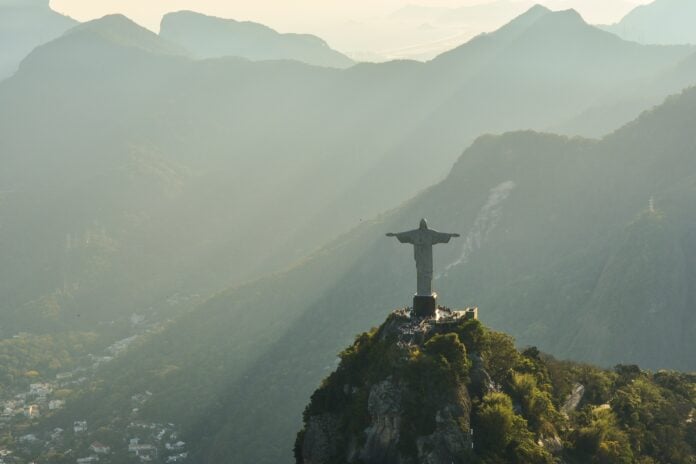The municipality of Rio de Janeiro will remove several statues of Portuguese figures because of a law proposal that prohibits the municipality from maintaining or installing statues, monuments, or signs that honor figures that were pro-slavery, reports CNN Portugal.
According to the official document, the law prohibits any type of tribute that makes a positive mention to individuals that committed acts against human rights, democratic values, or religious freedom.
The law was enacted this Wednesday and will come into effect effective immediately. According to the statements released by the local media, the law was proposed by one former council man, and a current council woman. As the City Hall of Rio de Janeiro missed the 15 day deadline to approve or veto the proposal, it became law.
As stated by its authors, any statues, monuments or signs that mention such figures positively, and are located in public spaces, shall be removed from such spaces and transported to museums. Furthermore, every single piece shall be accompanied by a contextualization of both, the piece and the personality.
There are several pieces that were explicitly mentioned, and will be removed. Most of them are, in fact, connected to figures that committed such acts. However, there is one that is not.
Among the artworks that will be removed is one that was offered to the municipality of Rio de Janeiro by Lisbon’s Mayor’s Office, in exchange for a statue of the Brazilian writer Machado de Assis.
This piece, which was built in honor of Father António Vieira, is located in the Catholic University of Rio de Janeiro, and will soon be moved to a museum.
However, according to the Portuguese President of the Republic Marcelo Rebelo de Sousa, António Vieira is generally known as one of the first defenders of the rights of indigenous people, especially in Brazil. Historians argue that during the 17th century he spoke up against the exploration and slavery of indigenous people. He was not in favor of colonization. Consequently, he was persecuted by the Portuguese settlers, the King’s Court, and the Inquisition.
Still, not all in Portugal share the President’s sentiment. Back in 2017 in Portugal, an anti-racist group movement called Descolonizando protested against a similar statue in Lisbon of Father António Vieira, saying that he “represents a “selective slaveholder” who contributed to the colonization of millions of Africans.
The remaining figures, however, seem to be, without surrounding controversy, connected to personalities that acted against what we consider to be human rights, democratic values, and religious freedom.


